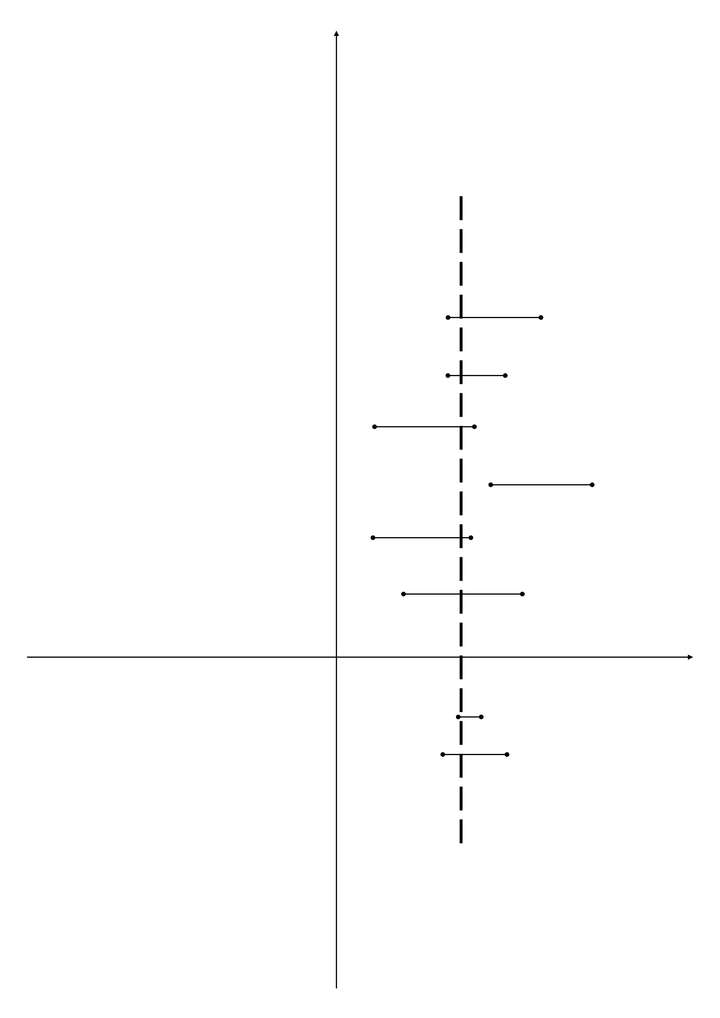置信度
置信度「Confidence Levels」是统计学中常见的概念,容易混淆,简单梳理记录。
Confidence levels are expressed as a percentage (for example, a 95% confidence level). It means that should you repeat an experiment or survey over and over again, 95 percent of the time your results will match the results you get from a population (in other words, your statistics would be sound!).
统计学中常见的任务是用样本「Samples」的统计量去估计总体「Population」的统计量。置信度「以95%为例」的含义就是,如果重复100次估计,其中有95%的情况下,从样本中得到的估计值与总体对应的统计量是Match的。在区间估计「Confidence Intervals」情况下,做100次区间估计,有95个置信区间包含总体真值。因为95%的置信区间包含真实值,所以只做一次区间估计时,我们也认为这个区间是可信的。
如下图示,竖虚线表示总体的统计量,带黑点的线段表示一次次的置信区间估计。

Refs
